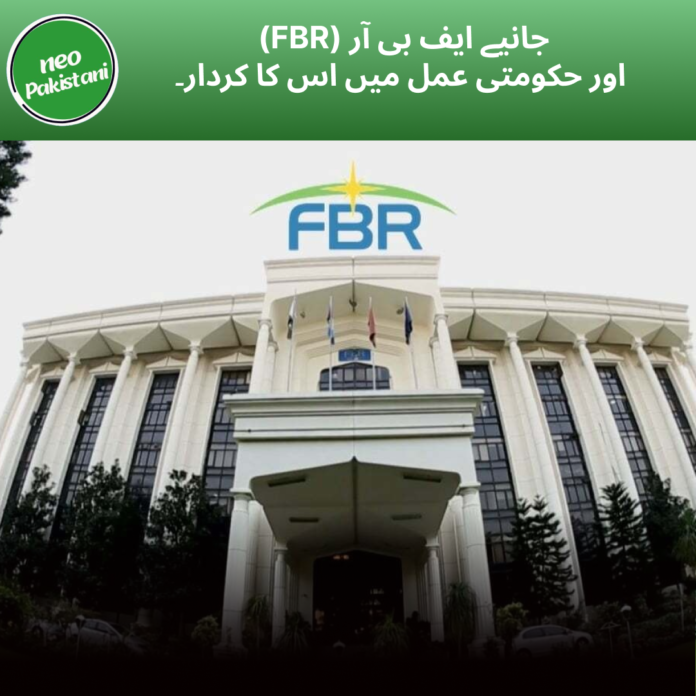The Federal Board of Revenue (FBR), formerly known as the Central Board of Revenue (CBR), serves as the backbone of Pakistan’s fiscal and financial system.
It was established in 1924 and is the federal law enforcement agency.
Main and critical responsibility of FBR include and are not limited to:
– collecting taxes
– formulating fiscal policies
– investigating tax crimes
Understanding the FBR’s structure, functions, and significance is essential for anyone interested in Pakistan’s economic landscape.
A Historical Journey: From Colonial Roots to Modern Challenges
The FBR’s roots trace back to the British Raj in India. The Central Board of Revenue Act, 1924, established the CBR, initially functioning under the Ministry of Finance.
Following Pakistan’s independence in 1947, the CBR continued to operate with some structural changes. In 1974, efforts were made to streamline the organisation.
In 1991, its status was elevated to a Revenue Division. However, this was short-lived, and the FBR reverted to its previous position in 1995. Finally, the FBR Act 2007 officially replaced the CBR name.
Organizational Structure: A Multi-Tiered Approach
The FBR operates under the Ministry of Finance and is headed by a Chairman. The chairman also serves as the Federal Secretary of the Revenue Division. The Chairman is supported by several Members and Chief Commissioners who oversee various functional areas like income tax, sales tax, and customs.
The organisation has a nationwide presence with regional offices, field formations, and inland revenue departments spread across Pakistan.
Core Functions: The Pillars of Tax Administration
The FBR’s primary functions encompass a wide range of activities crucial for efficient tax collection and fiscal policy development. Let’s dive deeper into some key areas:
- Tax Assessment and Collection: The FBR is responsible for assessing taxable income and collecting various taxes, including income tax, sales tax, customs duty, and federal excise duty. It formulates tax return forms, processes tax filings, and issues assessments based on taxable income. Additionally, it collects taxes through designated channels and enforces tax laws to ensure compliance.
- Tax Policy Formulation and Implementation: The FBR plays a vital role in developing and implementing fiscal policies related to taxation. It collaborates with the Ministry of Finance to propose tax reforms, suggest changes to tax rates and slabs, and recommend new tax measures.
- Tax Law Enforcement and Investigation: The FBR enforces tax laws and investigates tax evasion, money laundering, and other financial crimes. It has dedicated units responsible for identifying tax dodgers, conducting audits, and taking legal action against non-compliant individuals and businesses.
- International Cooperation: The FBR actively participates in international tax cooperation initiatives. It collaborates with tax authorities of other countries to exchange information, combat tax evasion across borders, and implement international tax treaties.
- Taxpayer Facilitation and Education: Recognising the importance of taxpayer compliance, the FBR offers various facilitation services. This includes providing guidance on tax filing procedures, issuing tax rulings, and developing educational resources to raise awareness about tax obligations.
Challenges and Opportunities: Navigating the Fiscal Landscape
Despite its crucial role, the FBR faces several challenges that hinder its effectiveness.
- Low Tax-to-GDP Ratio: Pakistan’s tax-to-GDP ratio remains significantly lower compared to regional benchmarks. This signifies a large informal sector and widespread tax evasion. Which creates obstacles for government revenue generation.
- Complex Tax System: The current tax system is often criticised for its complexity, with numerous tax brackets, exemptions, and deductions. This usually discourage compliance and create more opportunities for loopholes.
- Inefficient Tax Administration: Concerns exist regarding the efficiency of tax administration. Streamlining processes, upgrading technology, and improving resource allocation are crucial for better tax collection.
- Tax Evasion and Corruption: Tax evasion and corruption pose significant obstacles to achieving effective tax collection. The FBR’s efforts to identify and penalize tax evaders and address corruption within its own ranks are essential for building trust and improving tax compliance.
Looking ahead, the FBR has several opportunities to overcome these challenges and enhance its effectiveness.
- Digitalisation and Automation: Embracing digital technologies for tax filing, assessments, and audits can significantly improve efficiency and transparency.
- Tax Simplification: Simplifying the tax code by reducing exemptions and streamlining tax brackets can encourage compliance and make the system more user-friendly.
- Public Awareness Campaigns: Raising public awareness about the importance of taxation and the consequences of tax evasion can help build a culture of tax compliance.
- Collaboration with Stakeholders: Strengthening collaboration with businesses and professional bodies can foster understanding and develop a more cooperative approach to tax administration.


